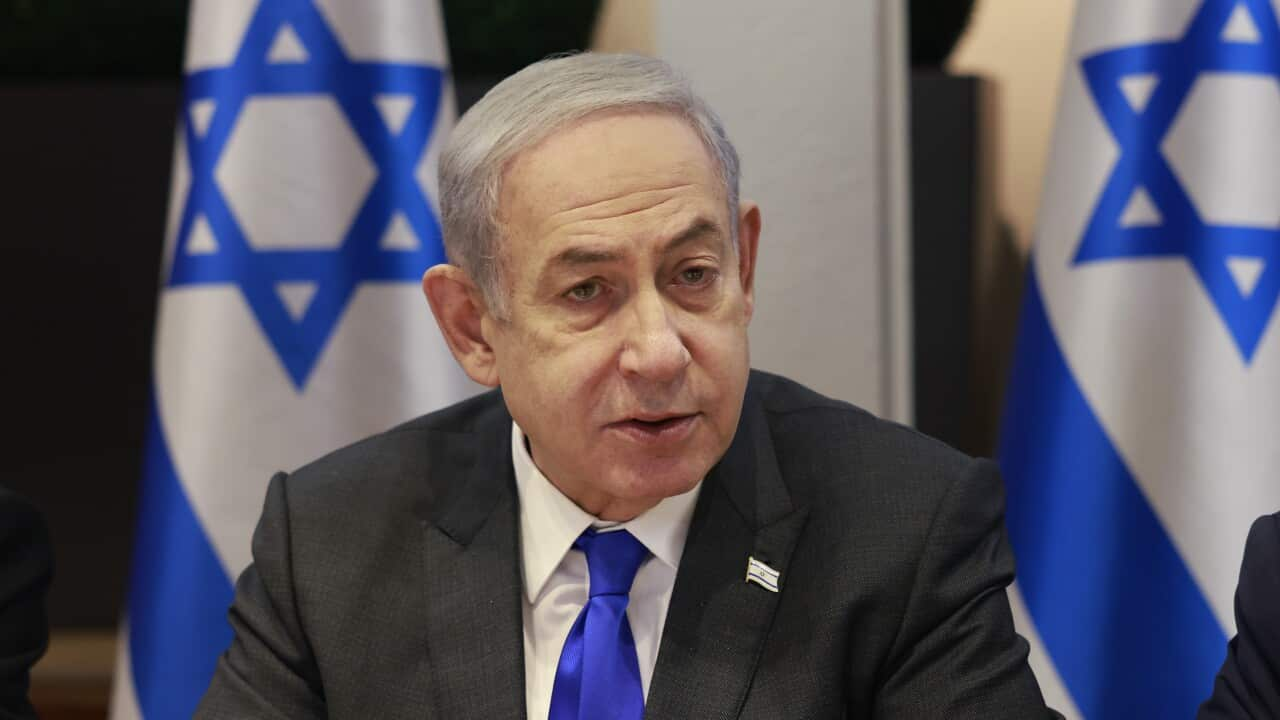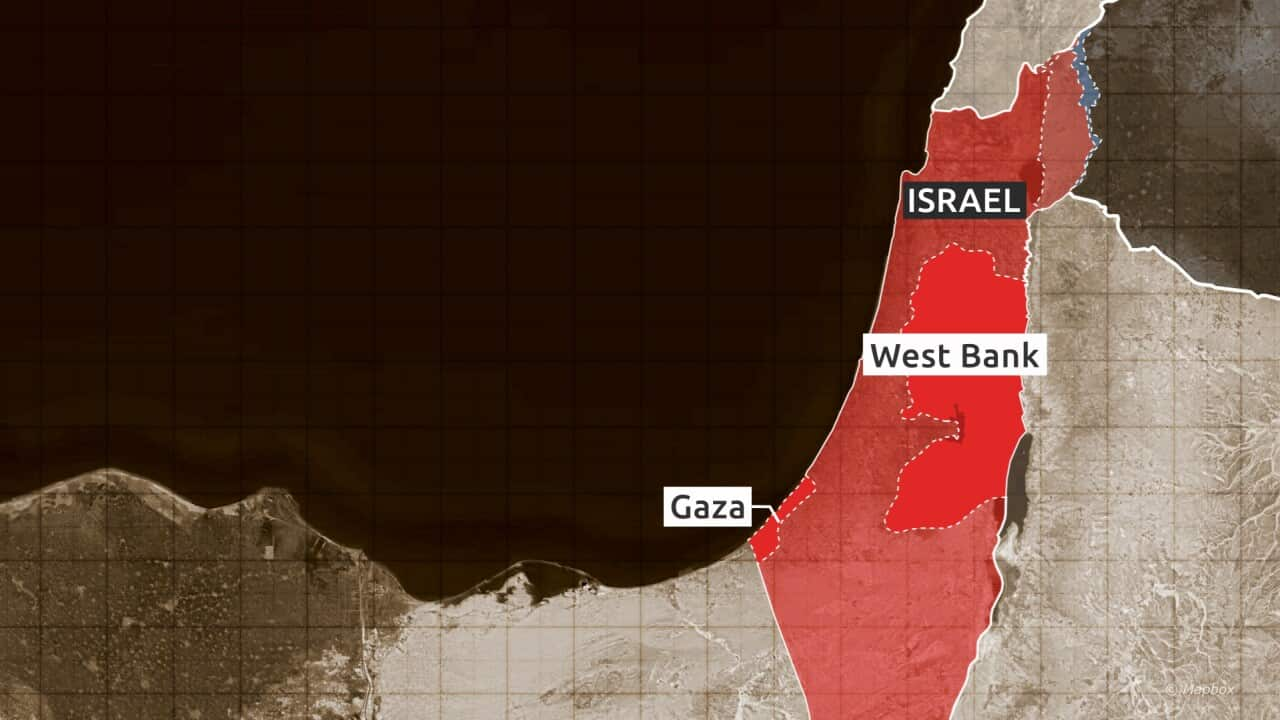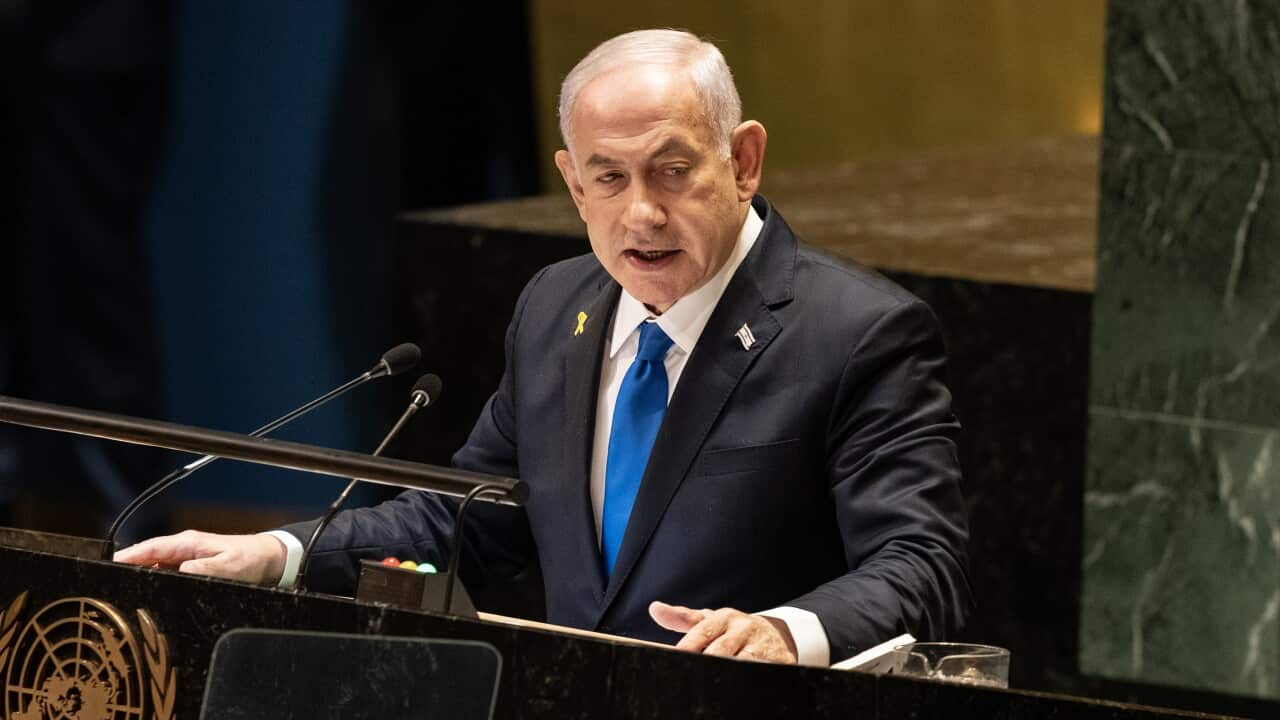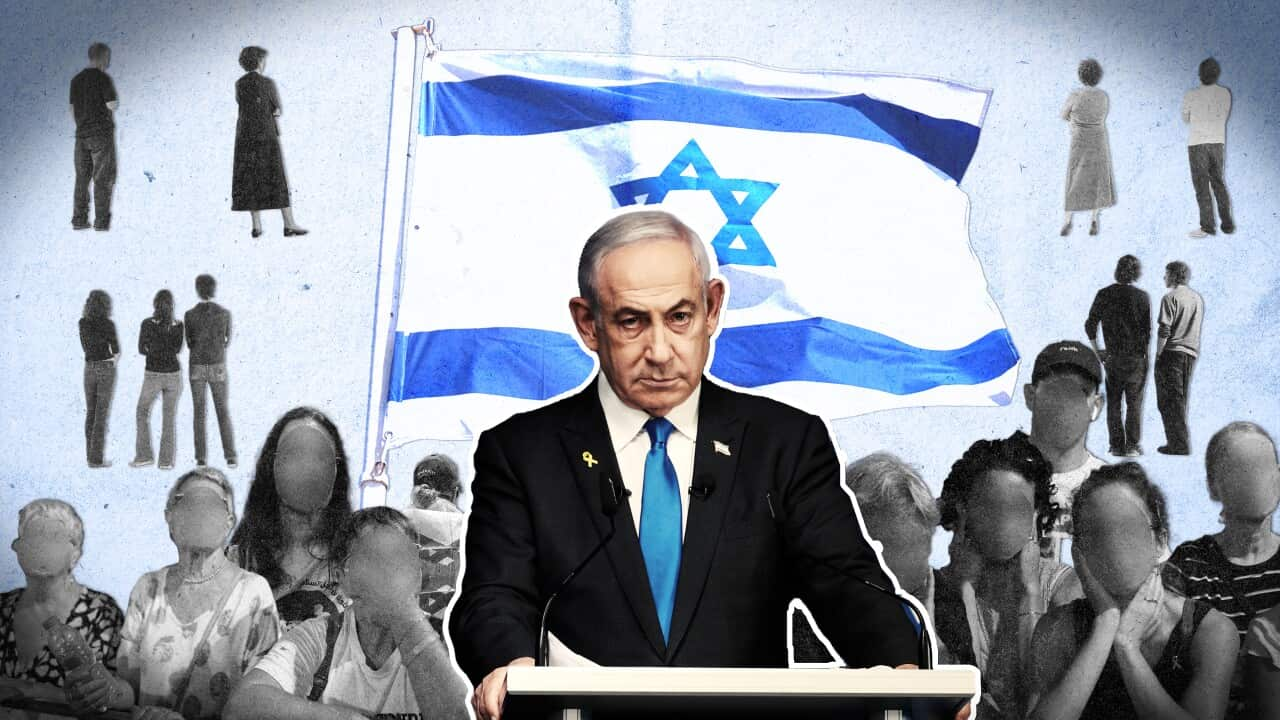Benjamin Netanyahu has dominated politics in Israel for decades.
Nicknamed "Bibi", he is the nation's longest-serving prime minister, leading Israel amid its war against Hamas and attacks on what it says are .
Here's what to know about him.
What did Netanyahu do before entering politics?
Netanyahu was born in Tel Aviv in 1949 to secular Jewish parents.
His father was a Polish-born historian who was active in right-wing Zionist groups, while his mother was born in what is now Israel.
Netanyahu was raised in Jerusalem and the US state of Pennsylvania, making him fluent in English and his native language, Hebrew.
After finishing high school in the US, he joined the Israel Defence Forces (IDF) in 1967, becoming part of the elite special operations unit Sayeret Matkal.
In 1972, Netanyahu — along with Ehud Barak, who would become prime minister of Israel between 1999 and 2001 — was part of a rescue operation for a hijacked plane at the Tel Aviv airport.
He graduated from the Massachusetts Institute of Technology in 1976, later working as a business consultant and then as Israel's ambassador to the United Nations.
Netanyahu regularly appeared on US television from the late 1980s, defending Israel and raising his profile both at home and abroad.

Benjamin Netanyahu (right) joined the IDF in 1967. Source: Getty / Israeli Government Press Office
What political party is Netanyahu the leader of?
Netanyahu was first elected to the Knesset — Israel's parliament — in 1988 as a member of right-wing party Likud.
It was formed in 1973 to challenge the social-democratic Israel Labour Party, which had governed the Jewish nation-state since .
Conservative and nationalist, Likud opposes the establishment of a Palestinian state under any conditions.
Between 1988 and 1992, Netanyahu was a deputy government minister before becoming Likud's leader in 1993.
When did Netanyahu become Israel's prime minister?
Netanyahu was first elected Israel's prime minister in 1996, aged just 46.
He was the first Israeli prime minister to be elected directly by popular vote and the youngest leader in the nation's history.
After being defeated in the 1999 election, Netanyahu retired from politics and entered the private sector.
But his absence from politics was short-lived, and he returned in 2002 as a foreign affairs minister before taking over the finance portfolio in 2003.

Benjamin Netanyahu was first elected Israel's prime minister in 1996. Source: Getty / Menahem Kahana/AFP
Mere months later, Netanyahu again became Likud's leader after Ariel Sharon left to set up a new centrist party, Kadima.
After forming a coalition with other right-wing parties following the 2009 election, Netanyahu began his second stint as prime minister.
Between 2018 and 2022, challenges in forming and retaining a stable governing coalition threw Israeli politics into turmoil and led to five snap Knesset elections being held in less than four years.
After the March 2021 election, a wide range of left- and right-wing parties formed a coalition to .
But it soon fell apart and with one of the most right-wing and religiously conservative governments in Israel's history.
What have Israeli-Palestinian relations been like under Netanyahu?
The Israeli-Palestinian peace process made some progress in the 1990s but has effectively collapsed under Netanyahu's leadership.
He has never engaged in substantive peace talks with the Palestinians, instead overseeing a rapid expansion of under international law.
Netanyahu has repeatedly expressed his refusal to allow the Palestinian Authority a role in post-war Gaza.
Netanyahu's government, which includes hardline pro-settlement groups, has also overseen a rise in armed raids against West Bank militant strongholds such as Jenin, which he labelled a "nest of terrorists".
along with Israel's defence minister Yoav Gallant and three senior Hamas leaders on suspicion of war crimes and crimes against humanity allegedly committed from October 7 onwards.
The request for the warrants is yet to be approved by ICC judges.
Is Netanyahu popular in Israel?
Before the Hamas-Israel war, Netanyahu was revered by loyal Likud party followers for his stated mission to defend the Jewish people against all threats, from militant groups to arch-enemy Iran.
But to his opponents, he was the "crime minister" who, while fighting corruption charges in court, was also leading a push to curb the powers of the judiciary in a way they feared would undermine democracy.
Netanyahu has who accuse him of not doing enough to seal a ceasefire deal that would free hostages seized by Hamas on October 7.
With that criticism has come a significant drop in support for the prime minister, with the majority of Israelis (58 per cent) having a somewhat or very unfavourubale view of him, according to a survey conducted by the Pew Research Center between March and April this year.
But the attacks on Hezbollah in Lebanon have given him a boost in popularity, with the latest poll finding most Israelis are now more supportive of Netanyahu than the majority of his rivals.
With reporting by Agence France-Presse












